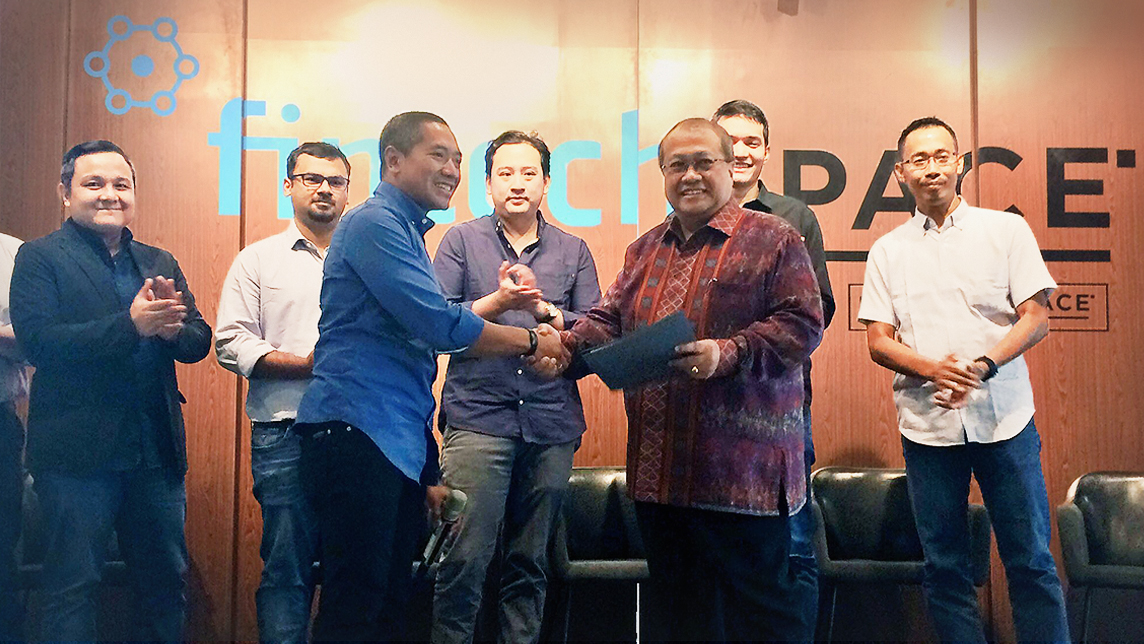In March 2018, P2P lending startups in Indonesia were taken aback when Wimboh Santoso, Chairman of the Financial Services Authority's (OJK) board of commissioners, said the companies had to stop displaying the OJK’s logo on their platforms.
These fintech firms, the official argued, were merely connecting lenders and borrowers – activities that did not fall under the OJK's purview – and so could not claim to be registered with and supervised by the central bank.
The Indonesia Fintech Association, or Aftech, swiftly countered with a statement defending its members’ use of the logo. P2P lending firms can, in fact, be evaluated by the OJK through various metrics, such as risk management methods and non-performing loan percentages, it said.
Aftech also pointed out that Santoso’s words actually ran counter to an existing rule laid out by the OJK itself, which states that fintech lending companies should register themselves with the OJK and display the logo once the process is complete.
Faced with this contradiction, the OJK retreated from Santoso’s statement; registered P2P lending websites have since continued to display the OJK’s logo.
Meeting of minds
Formed after a series of meetings among the nation’s fintech players in 2015, Aftech became a legal entity in March 2016. It has three main missions: undertake policy research for tech-based inclusive finance, active participation in the fintech community, and connect Indonesia’s fintech industry to the global ecosystem.
Today it has more than 140 members, comprising major players like Go-Pay, GrabPay, KoinWorks and Amartha, as well as lesser-known names. Its website also lists several major banks, consultancy firms and other financial institutions as partners.
Since its formation, Aftech has set up working groups, held meetings with the OJK and other authorities, as well as organized public events. In July this year, for example, it held a Fintech Fair alongside lending firm UangTeman to raise public awareness of trustworthy fintech firms.
P2P lending platforms disbursed IDR 20 trillion (about US$1.42 billion) worth of loans in 2018, a near seven-fold increase from the IDR 2.56 trillion recorded in 2017, according to OJK data.
Writing the rules
One of the most important contributions by the association has been the establishment of a Code of Conduct for Responsible Lending. Released in August 2018, the code was a response to growing demand for established standards of practice for the industry, as well as to problems surrounding the online P2P and microlending landscape. The code’s main points include transparency regarding fees, prevention of predatory lending, and encouraging ethical practices in disbursing and collecting loans.
The code, which is binding on all members of the association, complements the official rules set by the OJK. According to Rahmat Waluyanto, a member of Aftech’s advisory board, such a code is needed to improve public trust in the fintech industry.
Indeed, such confidence still needs to be won, especially given the surge in the number of dubious apps purporting to offer P2P lending. Last July, the OJK cracked down on more than 200 unlicensed lending apps, and in December expanded the list of blocked apps to more than 500. In comparison, there were just 77 OJK-registered and -supervised fintechs operating in Indonesia then.
The OJK also suspended a local fintech lending firm, Rupiah Plus, which had contacted phone numbers harvested from the user’s phonebook to collect debt. Rupiah Plus was then summoned for a meeting with the OJK and Aftech, and has since committed to improving its debt collection procedures.
United front
Professional organizations and industry associations like Aftech can prove vital in supporting and driving Indonesia’s burgeoning tech startup scene.
In fintech specifically, as the government struggles to keep up with rapid developments in the industry, local entrepreneurs can offer valuable input through dialogues and pooling research. Ideally, associations should act as an intermediary that advocates for the industry as well as for consumers, helping the government strike a healthy balance when drafting legislation for the sector.
Equally important is the need to build capacity and set industry standards. As more fintech startups join Aftech and the association grows in profile, it should encourage members to adhere to higher standards of service. Codes of conduct, member workshops and regular meetings can pave the way for this.
In particular, providing educational resources on key issues such as data protection, and privacy and legal compliance will be valuable for budding entrepreneurs. Members can also benefit from workshops that update them on new technological developments and consumer trends.
But at the end of the day, all these must go hand in hand with efforts to raise public awareness about the fintech industry and improve financial literacy.
As much as laws and codes of conduct can be written to prevent unethical practices, all stakeholders – especially consumers – must first be armed with the knowledge to identify and protect themselves against dishonest actors or loophole abuse. This will lead to greater mutual trust between fintechs and the public in the long run, setting the foundation for the industry’s growth and success.












